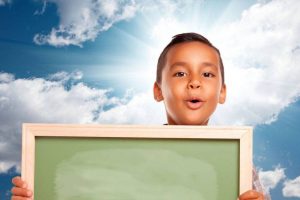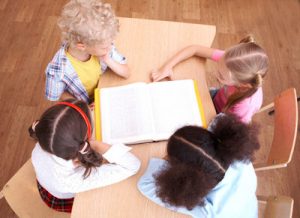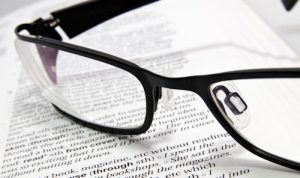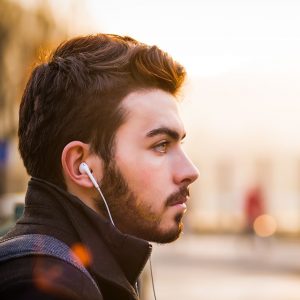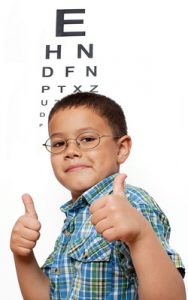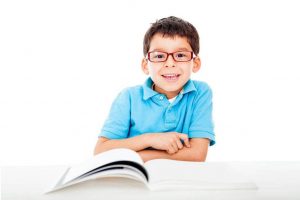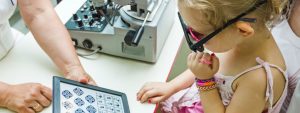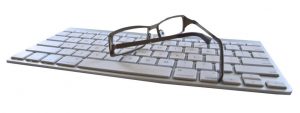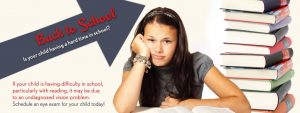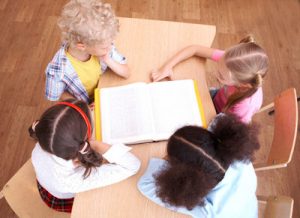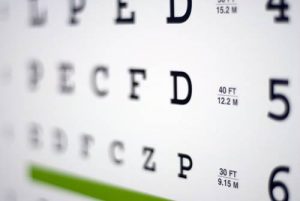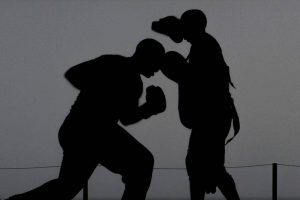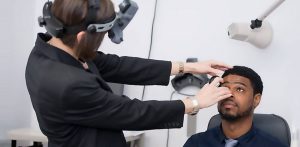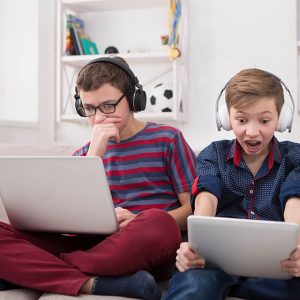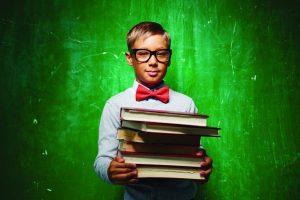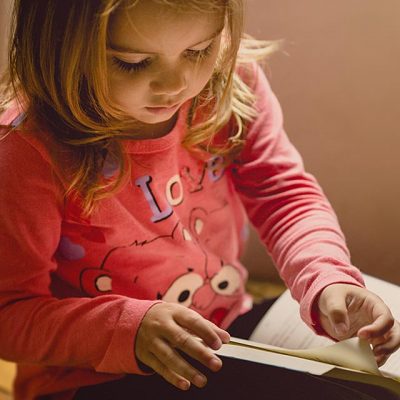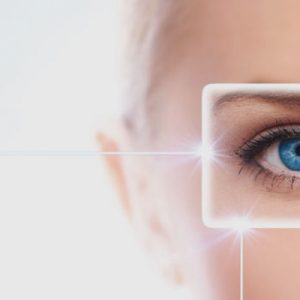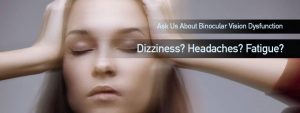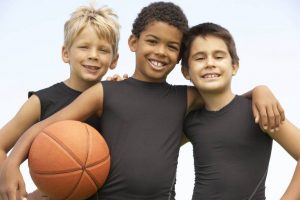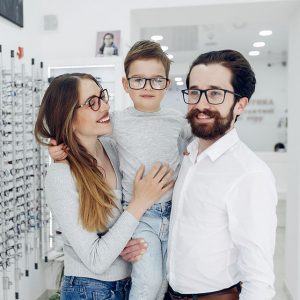2021 Update: Autism (ASD) and Vision
The latest information on autism (ASD) and how optometrists can provide life-changing interventions. Studies of eye clinic records suggest that children with autism (ASD) and
Read MoreBlurry Vision and Headaches
Did you know that headaches and blurred vision could indicate you have a undiagnosed eye condition? When blurred vision and a headache are experienced at the same time it can be frightening, especially the first time it happens. Blurred vision can affect one or both eyes. It can cause vision to be cloudy, dim, or even peppered with shapes and colors, making it difficult to see.
Read MoreWhat is Reading Fluency?
Is your child’s reading below grade level? If so, it could be a reading fluency problem. If a child has some kind of visual dysfunction,
Read MoreVisual Sequential Memory
Does your child struggle with reading or comprehension? It could be a visual sequential memory problem. The ability to remember the objects in a certain
Read MoreVisual Form Constancy
Does your child still reverse letters, numbers or words? It could be a visual form constancy problem. Form constancy is necessary to understand that
Read MoreVisual Figure Ground
Does your child struggle with copying words from the board? Or have difficulty finding important words in a text? It could be a visual figure-ground
Read More2021 Update: Vision Therapy for Eye Tracking
Over 30% of those diagnosed as having dyslexia have an eye tracking deficit. When a child has a visual processing or perceptual disorder it hinders
Read MoreHow does Visual Efficiency affect Learning?
Over 15% of the population suffer with visual efficiency problems – impacting their academic results and workplace performance. Visual efficiency is understood by measuring how
Read More2021 Update: Published Studies in Vision Therapy
Evidence-based medicine integrates academic research with clinical trials — making it the gold standard of published research. Are looking for published research on VT? Provided
Read More2021 Update: Vision Therapy for Learning
Research shows 25 percent of children have a significant vision problem that impacts their learning, according to the American Optometric Association (AOA). Up to 80 percent of all learning comes through the visual pathways. There are 17 visual skills that are necessary to perform at school and the office, these are all critical for learning.
Read More2021 Update: Vision Therapy for Visual Efficiency
Reduced visual efficiency can greatly reduce a student’s ability to learn or be an adult’s office productivity. Reduced visual efficiency can negatively impact a person’s
Read More2021 Update: Lazy Eye and Adults
Lazy eye is estimated to affect up to 5% of all adults. For many decades, it has been thought that only children under the age
Read More2021 Update: Reading Fluency
80 percent of classroom learning is visual, meaning that any problems in the visual system can impact a child’s reading fluency. If a child has
Read More2021 Update: BVD and Dyslexia
Studies show that up to 15% of the population may be dyslexic, though less than 10 percent actually receive a formal diagnosis. Dyslexia is a complex condition that impacts the way the brain interprets and processes information. It is one of the most common learning disabilities that affects writing, spelling and reading.
Read More2021 Update: BVD and Anxiety
According to the American Psychiatric Association, as many as 30% of the adult population experience anxiety at some point during their lifetime. Anxiety is the most common of all mental disorders. It can cause feelings of near-constant fear, panic, and worry. Feeling anxious and overwhelmed can come from being unsure of your surroundings and often prevents sufferers from living a normal life.
Read MoreIs there a Link between Visual Skills and Reading?
We thank Dr Dan Fortenbacher for the context of this blog. This is based on Dr Dan’s blog on the VisionHelp website; ‘The importance of
Read MoreVision and Autism: Part 2
Author: Randy Schulman, MS, OD, FCOVD As vision is key to so many other systems, vision intervention, such as vision therapy, can have a profound
Read MoreVision and Autism: Part 1
Author: Randy Schulman, MS, OD, FCOVD This year marks my 30th year as an optometrist and during all of those years I have seen thousands
Read MoreWhat Are Visual Efficiency Problems?
Poor visual efficiency skills can negatively impact performance in school, at the office, and on the sports field. Understanding and knowing what to look out for can help with early detection and treatment of visual problems – leading to improved school grades and sports achievements.
Read MoreDoes Your Child Have a Learning Difficulty?
Is your child not reaching their potential at school? Up to 80 percent of all learning comes through the eyes and visual pathways. Strong visual skills are critical for all aspects of learning. If there are problems with your child’s visual skills it could impact their ability to learn.
Read MoreAre Your Child’s Grades a True Reflection of their Potential?
Is your child struggling in school? They may have a vision condition that is affecting their ability to achieve academic success. When school becomes difficult
Read MoreCan you Improve your Child’s Academic Performance?
Did you know that 80% of the information you learn comes through your vision? If your child struggles to read or keep up with their
Read MoreWhat Are the Benefits of Vision Therapy?
Vision therapy is a structured program provided by highly trained and experienced optometrists. If you are considering vision therapy, it is important to understand the differences between programs offered by orthotists, occupational therapists and other healthcare practitioners.
Read MoreVision Therapy or Occupational Therapy?
25% of all children have a vision problem significant enough to affect their performance in school. Parents will do almost anything to get their child
Read MoreSandwiches and Vision Therapy?
A ‘sandwich’ is when pieces work better together, than each piece on its own … but what has this to do with vision therapy? This
Read MoreBVD Symptoms and Treatment
BVD can cause a variety of symptoms such as dizziness, motion sickness, headache, and light sensitivity. BVD can significantly impact the lives of both children and adults and since there is a wide range of symptoms to BVD, this condition is often misdiagnosed as dyslexia or ADD/ADHD.
Read MoreBVD and Motion Sickness
Binocular Vision Dysfunction (BVD) is a condition where the eyes are misaligned and the visual system struggles to send one clear image to the brain. BVD can cause dizziness and motion sickness due to the visual system’s difficulties in fusing together the images from each eye.
Read MoreChildren and BVD
Did you know children can also suffer from Binocular Vision Dysfunction (BVD)? In fact, BVD affects children almost 10 times more often than all children’s ocular diseases combined! Up to 25% of children have binocular vision problems affecting the function of their eyes.
Read MoreWhat is Binocular Visual Dysfunction (BVD)?
Up to 20% of the world’s population suffers from Binocular Visual Dysfunction (BVD). If you experience headaches, blurred vision, anxiety, balance problems, and dizziness making simple everyday tasks difficult, you may have this common visual problem.
Read MoreFeeling Anxious? You May Have a Vision Problem
Anxiety disorders affect millions of people each year. But did you know that certain vision problems can actually trigger anxious thoughts and feelings? Binocular vision
Read MoreLazy Eye Success
Author: Dr. Randy Schulman EyeCare Associates, CT “Vision therapy has helped me ride my bike, and helps me for school in math, writing, and reading. I
Read MoreLazy Eyes Need Binocular Vision Therapy
Vision therapy has been shown to be the most effective solution for lazy eye, as it treats the underlying cause of the condition. A lazy
Read More“Lazy Eyes” Are Not Lazy
If a lazy eye is not really ‘lazy’, then what is it exactly? Lazy eye (amblyopia) is the most common neuro-developmental vision condition, affecting up
Read MoreStanford University: Concussions and Oculo-Motor Dysfunction
This month, a presentation was given by Dr. Jamshid Ghajar, MD, PhD, FACS at the Stanford Brain Performance Center (Department of Neurosurgery and Stanford Athletics),
Read MoreVision Therapy Builds Confidence
If your child has been struggling in school, they may also be struggling with their confidence and self esteem. Many children who suffer from reduced
Read MoreHow Do Reading Glasses Help Children?
Has your optometrist prescribed reading glasses for your child? When people think of reading glasses, they generally think of older adults with presbyopia. Reading glasses for children, typically referred to as ‘low plus’ lenses, are not prescribed for the same reason as they are for adults, but rather to support the focusing skills necessary for near vision activities.
Read MoreThe Larry Fitzgerald Story
Have you heard of NFL star Arizona Cardinals wide receiver, Larry Fitzgerald?
He is the second most career leading receiver for total TDs, yards, catches and more, after the legendary Jerry Rice. Larry credits his success on the field to a customized vision therapy program.
Vision Therapy or Orthoptic Therapy?
Vision therapy and orthoptic therapy are sometimes confused with one another. The information on this page includes everything you need to know about what makes
Read MoreVision for Rock Climbing
Rock climbing is a sport that requires physical strength, endurance, and balance … and visual skills Did you know that to be a successful climber,
Read MoreHelp! My Child Dislikes Online Learning
The current COVID-19 pandemic has children learning through digital platforms for up to 7-10 hours a day! But what can you do when your child
Read MoreSixth Nerve Palsy
Sixth nerve palsy, also called abducens nerve palsy, is a rare condition that occurs when the sixth cranial nerve, also called the abducens nerve, becomes damaged.
Each year, around 11 in 100,000 people are diagnosed with sixth nerve palsy.
The sixth cranial nerve is responsible for sending signals to the lateral rectus muscle. When the sixth cranial nerve becomes damaged, it prevents the lateral rectus muscle from operating and results in an inward eye turn (esotropia) and double vision.
Read MoreFourth Nerve Palsy
Fourth Nerve Palsy, also known as Superior Oblique Palsy or Trochlear Nerve Palsy, occurs when the fourth cranial nerve becomes diseased or damaged. The fourth cranial nerve controls the actions of the superior oblique eye muscle and is responsible for turning the eye inward and downward.
Read MoreWhat Is Neuroplasticity?
Neuroplasticity refers to the brain’s ability to change and adapt in response to new experiences. It was once thought that the nerve fibers in the
Read MoreEye Conditions That Can Affect Academic Success
Is your child struggling to keep up with their classmates? A vision condition may be affecting their ability to achieve academic success. The following eye
Read MoreHow to Help Your Students Succeed
According to the American Optometric Association (AOA), 25 percent of all children have a vision problem significant enough to impact their learning. Up to 80
Read MoreThe Do’s and Don’ts of Vision Therapy
Has your optometrist recommended a program of vision therapy? Vision therapy is an effective program designed to treat a variety of vision conditions that cannot
Read MorePrism Lenses for Double Vision
Double vision is a relatively common problem, and is responsible for 850,000 visits to the doctor and hospital each year. Double vision, also known as
Read MoreHow Does Vision Therapy Boost Self Confidence?
Could improving your child’s school grades also improve their motivation and self confidence? Many children who suffer from reduced visual skills are not identified and end up struggling through school and even on the sports field – often being mislabeled as clumsy, lazy, or learning disabled and even misdiagnosed with ADHD. These negative stigmas can significantly impact a child’s self esteem and confidence, both inside and outside the classroom.
Read MoreHow to Improve Your Child’s Reading Skills
If your child struggles to read, they may have an undetected visual problem. Reading fluency and comprehension is dependent on the strength of the visual skills – specifically, binocular vision, saccades, accommodation, visual fixation, and convergence. A deficiency in any of these visual skills can result in reading difficulties, which can consequently impact a child’s ability to learn.
Read MoreUnderstanding Convergence Insufficiency
Convergence insufficiency (CI) affects up to 15 percent of all school-age children. Convergence insufficiency is a binocular vision condition that affects near vision and eye
Read MoreDo Vision Screenings Assess Functional Vision?
Most vision screenings conducted at schools measure visual acuity, or how well you can see, but unfortunately, do not assess other important aspects of a
Read MoreMeniere’s Disease and Vision
What is Meniere’s disease? Meniere’s disease is a chronic vestibular, or inner ear condition that causes severe vertigo and tinnitus (ringing in the ears), fullness
Read More5 Tips to Improve Your Game
Whether you’re trying out for a high school sports team, training for a 5K marathon, or competing in a friendly softball league, practice these 5
Read MoreVision for Motorsports
Drivers in all motorsports are constantly seeking a competitive edge – improved visual skills may be the solution. Whether your passion is MotoGP or NASCAR,
Read MoreVision for Boxing
To thrive in the ring, your boxing skills are are as vital as your visual skills. Clear vision is important for a boxer, but having
Read MoreVision for High School Athletics
High school athletics play an integral part of a teenager’s high school experience and can affect both their personality and social success. Athletic success breeds self confidence in teenagers and sometimes may even lead to an athletic scholarship to a college or university of choice.
Read MoreVision for Skiing
A great skier maintains balance, dynamics, and control. But your skiing performance is highly dependent on the integrity of your visual skills Your visual skills
Read MoreHeadaches and Migraines
Over 15 percent of adults in the U.S. complain of severe headaches or migraines. What’s the difference between a headache and migraine? Headaches A headache
Read MoreTraumatic Brain Injury and Neuro-Optometry
What is a neuro-optometrist? Neuro-optometrists diagnose and treat visual problems related to neurological conditions and traumatic brain injuries (TBI). Through rehabilitative treatment, neuro-optometrists retrain and
Read MoreResearch Reveals New Effective Treatment for Adults with Lazy Eye
Amblyopia, also known as “lazy eye”, is a vision problem that affects both children and adults. Lazy eye typically begins in childhood and causes a
Read MoreProtecting Your Child From Digital Eye Strain
How does digital eye strain affect children? In recent years, there has been a significant surge in the amount of time children spend in front
Read MoreVision Therapy: Additional Evidence-Based Research
Evidence-based medicine integrates academic research with clinical trials — making it the gold standard of published research. The following articles provide just a sample of
Read MoreWhat’s the Deal with Prism Lenses?
Author: Dr. Randy Schulman EyeCare Associates, CT Has your eye doctor prescribed prism glasses or lenses? More recently, people are hearing more and more about
Read MoreIs “20/20” Perfect Sight?
Author: Dr. Denise Smith The Center for Vision Development, Austin TX 20/20 vision is not ‘perfect sight’ Most people don’t think about vision until they
Read MoreVision Therapy for Math: Success Stories
Personal stories from adults and children who improved their math scores following Vision Therapy. *Names have been changed for privacy protection. Click here for a
Read MoreVision Therapy for Spelling: Success Stories
Real life stories of children with spelling difficulties, where an underlying visual problem was diagnosed and treated with Vision Therapy. *Names have been changed for
Read MoreVision Therapy: Success Stories
Real life stories of children with reading difficulties, where an underlying visual problem was diagnosed and treated by an eye doctor experienced in children’s vision. *Names have been changed for privacy protection.
Read MoreDoes Amblyopia (Lazy Eye) Affect Eye-Hand Coordination?
What is a lazy eye and how does it develop? Amblyopia, commonly known as lazy eye, is a neuro-developmental vision condition that begins in early
Read MoreDo Pencil Push-Ups Work?
Pencil push-ups are a commonly prescribed eye exercise for the treatment of convergence insufficiency (CI). The question is, are they really effective? Pencil push-up treatment
Read More8 Vision Therapy Myths and Facts
Vision therapy is a specialized program prescribed for the treatment of vision conditions that cannot be fully treated with eyeglasses or contact lenses. Unfortunately, there
Read MoreHow Can a Developmental Optometrist Help?
Developmental optometrists believe that vision can be developed and improved through a learned process. A developmental optometrist, also called a behavioral optometrist, focuses on the
Read MoreThe Vision Coach
Authors: Dr. Alex and Patti Andrich Vision Development Team Has your coach ever told you to ‘keep your eye on the ball’? Winning coaches are
Read MoreVision Therapy and Children’s Vision: Books
Many parents request resources and names of books to help them to gain a deeper understanding of their children and to appreciate the benefits of
Read MoreVision Therapy: Glossary of Terms
Have you heard some terms from friends, family or even your eye doctor, that you are not sure what they mean? Here is a guide
Read MoreWhat Is Intermittent Strabismus?
Strabismus, also called an eye turn, can be intermittent or constant— depending on how often it occurs. Intermittent strabismus occurs occasionally, most often during stressful
Read MoreHow Are Prisms Used in Vision Therapy?
Prism lenses can improve vision for clearer, more comfortable binocular vision. Prism lenses, also called yoked prisms, are often prescribed by eye doctors for patients
Read MoreWhat Are Prism Lenses?
Prism lenses can be effectively used to treat vision conditions, such as double vision and other binocular vision difficulties. One of the most common uses for an eye doctor to prescribe prisms is to treat a condition known as Binocular Visual Dysfunction (BVD).
Read MoreVision Therapy for School: Success Stories
Personal stories from parents of children who struggled academically, and after completing a program of Vision Therapy their school grades improved. *Names have been changed for privacy protection.
Read MoreVision Therapy for Handwriting and Fine-Motor Control: Success Stories
Personal stories from parents of children who had poor handwriting and fine motor skills prior to Vision Therapy. *Names have been changed for privacy protection.
Read MoreVision Therapy for Adults: Success Stories
Personal stories from adults whose lives have been enhanced with Vision Therapy.
*Names have been changed for privacy protection
Vision Therapy for “Slow Learners”: Success Stories
Personal stories from parents of children labeled as “slow learners” when an underlying vision problem was causing their learning difficulties. *Names have been changed for
Read MoreVision Therapy for “Laziness”: Success Stories
Personal stories from parents of children who were mislabeled as “lazy”, when a vision problem was the underlying cause. *Names have been changed for privacy
Read MoreVision Therapy for Self Confidence: Success Stories
Real life stories of children who struggled with self confidence as a result of an underlying vision problem. *Names have been changed for privacy protection.
Read MoreVision Therapy for Fatigue: Success Stories
Real life stories of adults and children who experienced eye fatigue before completing a program of Vision Therapy. *Names have been changed for privacy protection.
Read MoreVision Therapy for Dizziness: Success Stories
Stories of adults and children who suffered from dizziness or motion sickness prior to completing a program of Vision Therapy. *Names have been changed for
Read MoreVision Therapy for Blurred Vision: Success Stories
Stories of adults and children who sought to improve their vision clarity with Vision Therapy. *Names have been changed for privacy protection. Andrew My name
Read MoreVision Therapy for Music: Success Stories
Personal stories from adults and children who enhanced their musical performance with Vision Therapy. *Names have been changed for privacy protection. Click here for a
Read MoreVision Therapy for Eye-Hand Coordination: Success Stories
Real life stories of children who had poor eye-hand coordination skills before completing a program of vision therapy. *Names have been changed for privacy protection.
Read MoreVision Therapy for Headaches: Success Stories
Real life stories of children and adults who suffered from headaches before completing a vision therapy program. *Names have been changed for privacy protection. Click
Read MoreVision Therapy for Handwriting: Success Stories
Does your child find it difficult to write neatly? They may have a vision problem. Many vision problems not only affect visual clarity, but the
Read MoreVision Therapy for Homework Difficulties: Success Stories
Personal stories from parents of children who struggled to complete their homework before completing a program of vision therapy. *Names have been changed for privacy
Read MoreVision Therapy for 20/20 Vision: Success Stories
Personal stories from parents of children who have 20/20 vision, and still benefited from vision therapy. *Names have been changed for privacy protection. Have you
Read MoreVision Therapy for Eye Turns: Success Stories
Personal stories from parents of children diagnosed with an eye turn (strabismus). *Names have been changed for privacy protection. Click here for a list of
Read MoreVision Therapy for Eye Tracking: Success Stories
Personal stories from parents of children diagnosed with eye tracking difficulties. *Names have been changed for privacy protection. Click here for a list of more
Read MoreVision Therapy for Double Vision: Success Stories
Personal stories from adults and children diagnosed with double vision. *Names have been changed for privacy protection. Click here for a list of more success
Read MoreVision Therapy for Depth Perception: Success Stories
Personal stories from parents and children. *Names have been changed for privacy protection. Click here for a list of more success stories pages, you might
Read MoreVision Therapy for Learning Difficulties: Success Stories
Personal stories from parents of children with learning difficulties. *Names have been changed for privacy protection. Click here for a list of more success stories
Read MoreVision Therapy for Special Education: Success Stories
Personal stories from parents of children in special education. *Names have been changed for privacy protection. Click here for a list of more success stories
Read MoreVision Therapy for Gifted Learning Difficulty (GLD): Success Stories
Personal stories from parents of children diagnosed with GLD. *Names have been changed for privacy protection. Click here for a list of more success stories
Read MoreVision Therapy for Dyslexia: Success Stories
Personal stories from parents of children diagnosed with dyslexia. *Names have been changed for privacy protection. Click here for a list of more success stories
Read More
